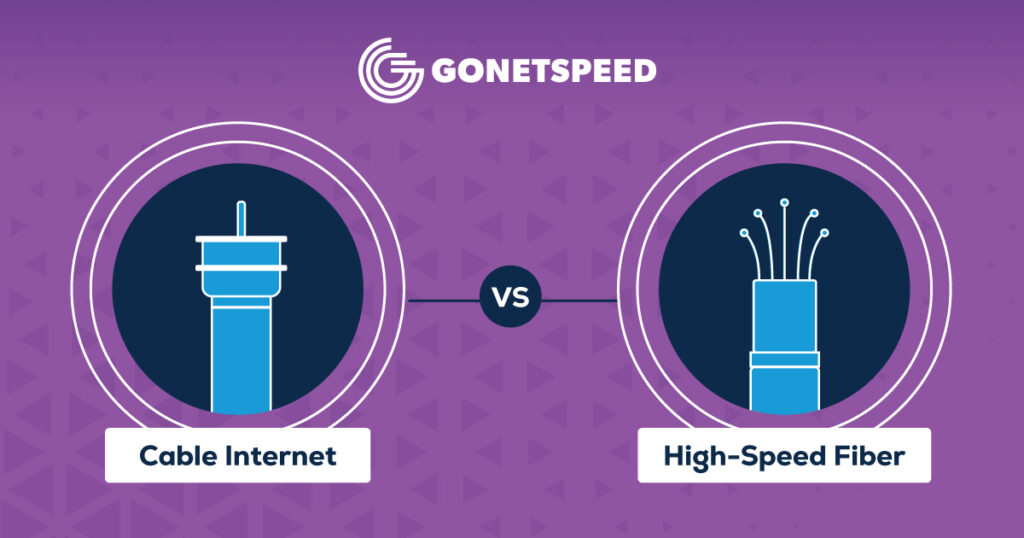
So you’re thinking about upgrading your Internet connection? Smart move! The Internet is amazing, and the faster it is, the better it gets. But with so many options out there, it can be tough to figure out what’s best for you. Don’t worry – we’re here to help. Read on to learn why fiber Internet is a better choice than traditional cable Internet.
What is fiber Internet, exactly? Well, it’s like cable, but way better. Instead of using copper wires to transmit data, fiber uses fiber-optic cables. These cables are made of really thin strands of glass or plastic that can send data super-fast over long distances. And because fiber doesn’t get messed up by other electronic devices, it’s way more reliable than cable. That means less time waiting for stuff to load and more time doing what you love online. But that’s just the beginning. Here are the top 5 ways that fiber outperforms cable:
- Speed: Fiber Internet is fast. Really fast. Like, “blink and you’ll miss it” fast. With speeds up to 1 Gbps (gigabit per second) or higher, fiber can handle pretty much anything you throw at it. Want to stream high-definition videos? No problem. Want to play online games with less lag and fewer interruptions? You got it. Want to download a bunch of files in a hurry? Easy-peasy. With fiber, the sky’s the limit.
- Reliability: Fiber Internet is more reliable than cable. Period. Because fiber-optic cables aren’t subject to interference from other electronic devices, you’re less likely to experience dropped connections, slowdowns, or other annoying issues. That means you can do whatever you need to do online with confidence. After all, you’ll have a stable connection!
- Scalability: Fiber Internet is more scalable than cable. What does that mean? It means that as more people sign up for fiber in your area, the available bandwidth is shared among all users without sacrificing performance. With cable, more users means less bandwidth for everyone, which can lead to slower speeds and a less reliable connection. So if you live in an area with high demand for Internet connectivity, fiber is absolutely the way to go.
- Distance: Fiber Internet can transmit data over longer distances than cable. Why does that matter? If you live in a rural or remote area, you may have limited options for Internet connectivity. But with fiber Internet, you can get fast and reliable Internet no matter where you live.
- Security: Finally, fiber Internet is more secure than cable. Because fiber-optic cables transmit data using light instead of electricity, it’s much harder for hackers to intercept or tamper with your data. That means greater peace of mind when you surf the web!
But wait, there’s more! Not only is fiber a better option than cable for the five reasons above, it’s also future-proof. Fiber-optic cables are capable of transmitting data at much higher speeds than the copper wires used in cable, and they also have a much greater bandwidth capacity, which means they can handle more data at once. As the demand for faster and more data-intensive applications continues to grow, fiber’s superior speed and capacity make it better equipped to meet the needs of the future compared to cable. With fiber Internet, you’ll be ready for whatever the future brings. And isn’t that a great feeling?
So there you have it: the case for fiber Internet. We hope we’ve shown you it’s the better choice for anyone who wants a fast, reliable, and future-proof Internet connection. If you have any questions or want to learn more, don’t hesitate to get in touch. We’re always here to help you get the most out of your Internet connection. Thanks for reading, and happy surfing!